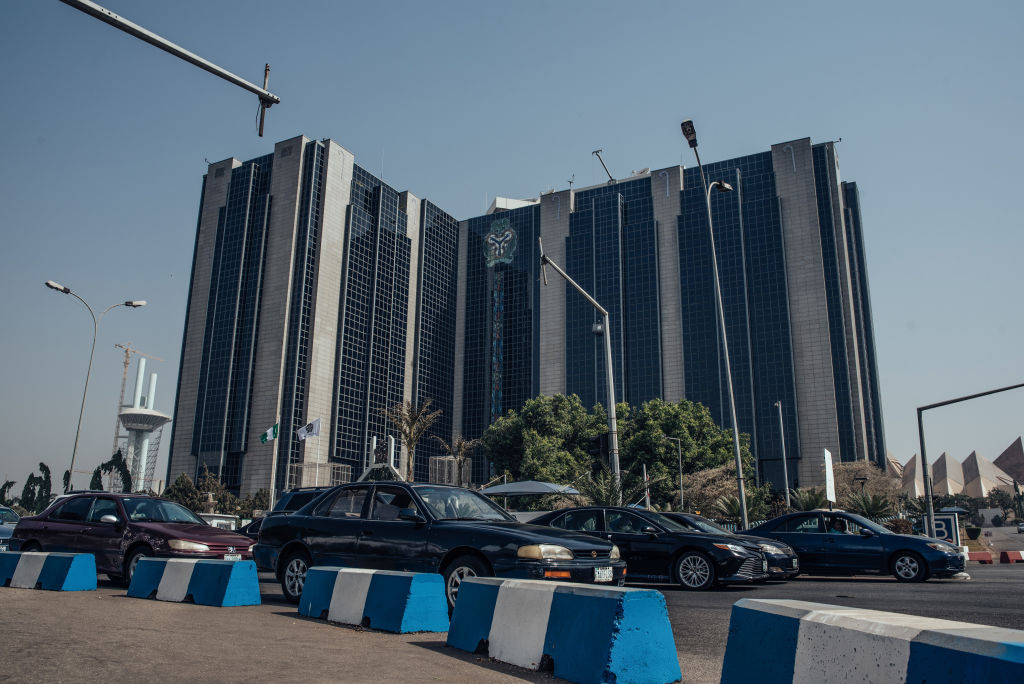The move reflects a cautious approach as inflation slows and macroeconomic indicators begin to stabilize in Africa’s former largest economy, according to analysts.
Nigeria’s central bank held its benchmark interest rate unchanged at 27.5% on Tuesday, marking the second pause this year following a series of aggressive hikes last year.
The decision, taken at the 300th meeting of the Central Bank of Nigeria’s (CBN) Monetary Policy Committee (MPC), was unanimous, according to the governor Olayemi Cardoso.
Alongside the benchmark rate, known as the Monetary Policy Rate (MPR), the committee also retained the Cash Reserve Ratio (CRR) at 50% for deposit money banks and 16% for merchant banks, the Liquidity Ratio at 30%, and the asymmetric corridor at +500/-100 basis points around the MPR.
“We observed relative improvements in key macroeconomic indicators that suggest a moderation in prices over the near to medium term,” Cardoso said during a post-meeting press briefing in the capital Abuja.
Loading...
He pointed to a narrowing gap between official and parallel exchange rates, a positive balance of payments, and lower petrol prices. He also noted early signs of easing food inflation.
The CBN’s decision to hold rates steady follows a turbulent 2024, during which the bank hiked interest rates six times in response to spiraling inflation.
Annual inflation reached a 28-year high last year, driven by a currency devaluation and the removal of costly fuel subsidies shortly after President Bola Tinubu assumed office in May 2023. These reforms, intended to reduce government spending and unify Nigeria’s multiple exchange rates, triggered price surges across the economy.
In February, Nigeria’s National Bureau of Statistics (NBS) rebased the country’s Consumer Price Index (CPI) for the first time since 2009, shifting the base year to 2024. This rebasing significantly altered how inflation is measured and contributed to a sharp statistical drop in the inflation rate. The CPI rebasing also reflected updated household consumption patterns and a revised inflation basket.
According to the NBS, headline inflation slowed to 23.71% year-on-year in April, down from 24.23% in March. Food inflation, a key concern in a country where many households spend over half their income on food, dropped to 21.36% in April, a steep fall from 40.53% a year earlier.
Nigerian economist Abdullahi Ibrahim Usman had predicted that the CBN might maintain its tight monetary stance, given ongoing concerns around inflation, currency volatility, and subdued growth.
“Holding the rate steady shows the CBN is prioritizing stability while assessing the effects of past hikes,” Usman says to FORBES AFRICA. “It’s a prudent move, but it needs to be backed by fiscal discipline and structural reforms to be truly effective.”
He notes that while higher rates can help curb inflation and stabilize the naira, they can also constrain access to credit and slow economic recovery.
“All eyes will be on how the market reacts, especially with inflation still a concern,” Usman adds.
Loading...
